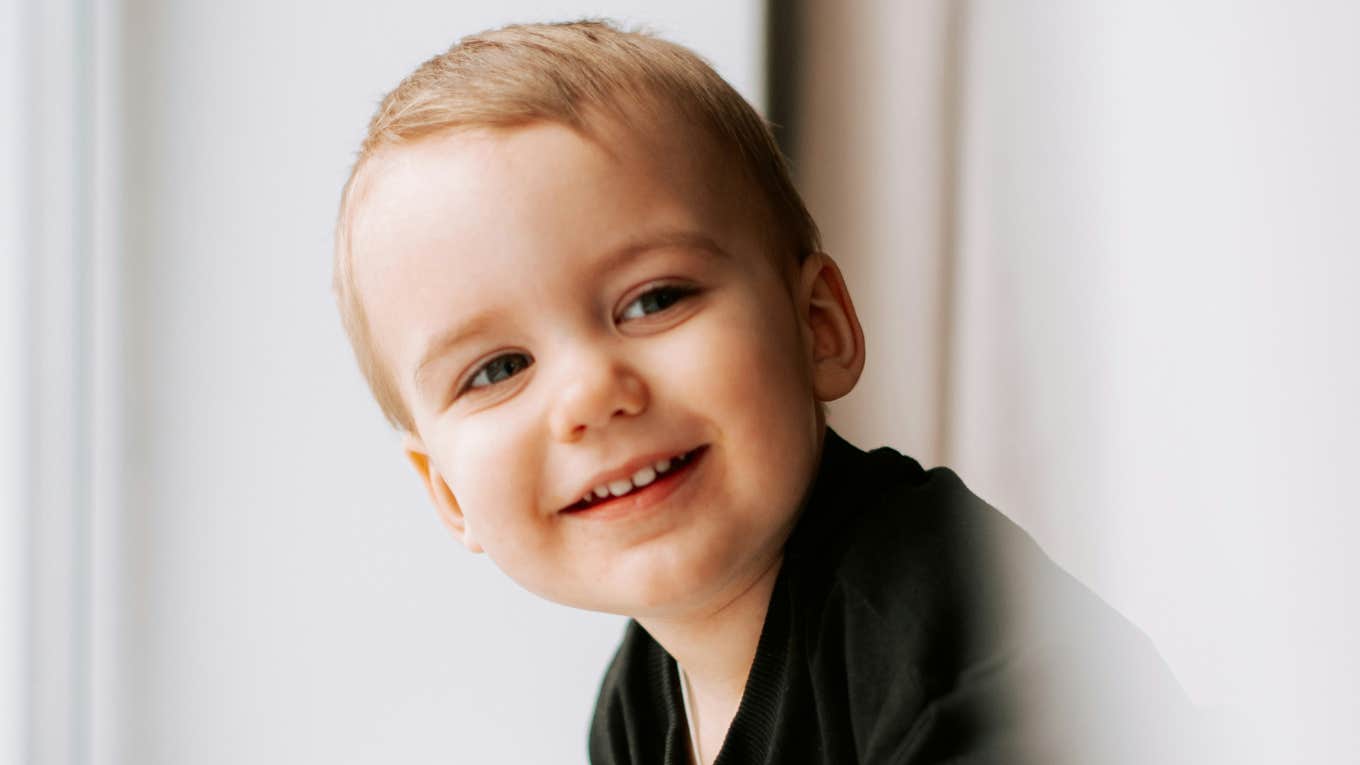I Was An Academic High Achiever Until Raising Neurodivergent Kids Changed The Way I See The World
My children's brains functioned so differently from my own that it was as if a whole new world opened before my eyes.
 Kateryna Hliznitsova | Unsplash
Kateryna Hliznitsova | Unsplash I was raised in a family that valued high academic achievement above almost all else. Neither of my parents had the opportunity to attend college. My dad was raised in rural poverty and had no electricity or running water until the age of 16.
My mom was accepted to university and preparing to attend until, weeks before she was to move in, she learned her parents could no longer afford to send her. Her brother had just finished his engineering degree, but since she was a young woman in the 1950s, a college degree was thought to be less important for her. She paid her own way through a secretarial school instead.
From the moment I can remember hearing language, I was told that I would go to college. This was an expectation born out of love and my mother’s disappointments. Her prospects had been dismissed and overlooked, and as the youngest daughter with two older brothers, I would not suffer the same fate.
I was a natural early reader and was placed, unadvisedly I now believe, in first grade at kindergarten age. I voraciously consumed classic literature, and I will never be sure whether this was because I intrinsically loved the classics, or because it made my mother so happy and proud to see me reading these novels.
TV was strictly monitored in our home. If you stayed home sick, you stayed in bed with no diversions. We were not allowed to have jobs during the school year, lest it take our attention away from our academic studies.
My parents were loudly, and often embarrassingly, proud of our academic successes. They constantly boasted about us within our hearing. I recently cleaned out my mother’s drawers and found thousands of newspaper clippings, certificates, and work samples from our childhoods.
I carried my parents’ values with me into my teaching career and then into my parenting. It will not be a surprise to the neurodivergent among us that I believed learning differences were exclusively negative.
Over twenty years of socialization led me to internalize that those who were not naturally inclined to excel in reading, spelling, and memorization — and who could not overcome these deficits through hard work — were not destined for academic success. Were these beliefs operating above board in my consciousness? No. They had become part of my internal wiring.
The universe gave me a gift: Neurodivergent children with brains that functioned so differently from my own that it was as if a whole new world opened before my eyes.
 New Africa / Shutterstock
New Africa / Shutterstock
A different type of intelligence
My oldest son, clearly bright, struggled to learn to read despite having listened to the voices of the adults in his life reading to him since the day he was born. He couldn’t seem to tell the difference between a middle piece of a puzzle and an edge piece.
Sight words required relentless practice before he was able to recognize them. Spelling was torture. I couldn’t understand how things that had been so effortless for me were so challenging for a child who carried a laminated picture of the periodic table in his pocket. Ironically, it was my mom who figured it out first: dyslexia.
It turns out that my dad is dyslexic. My dad who stopped reading aloud in school when a teacher openly laughed at his reading ability and has never read out loud since. My dad who prioritized our academic success above all else, desperately trying to make sure we wouldn’t turn out like him.
My dad who started his own business because he never felt fully comfortable working for someone else. He didn’t know he was dyslexic. He only knew that no one believed in his abilities and that he’d need to make his own way.
My dad is an entrepreneur. He is an out-of-the-box thinker. He spent his life knowing he had made success for himself despite his uncooperative brain — yet sometimes mentioned the shock he felt when the results of his military IQ test came back as quite high.
We now know, of course, that his entrepreneurial success was likely because of the neurodivergence that he subsequently passed down to his grandchildren. See an article in Harvard Business Review that calls neurodiversity a competitive advantage here.
It has been incredible and heartbreaking to watch my dad realize that the child he fell in love with as a toddler, his oldest grandson, shares his brain to an almost unbelievable degree. The strengths that he wasn’t able to see in himself are on full display in his beloved grandchild.
In talking with my dad about my son’s experiences, I have seen my dad begin to let go of the shame he carried for more than 80 years. Navigating the world alongside my children has not only changed my worldview but also opened a new inner world for my father.
A new perspective on neurodivergence
 Yuri A / Shutterstock
Yuri A / Shutterstock
The most important thing I have learned? Neurodivergence is critical to our society.
It is not an accident that brains that see the world differently — that can see the forest instead of focusing on the trees, that are the square pegs in a world of round holes — have flourished and thrived despite the best efforts of our society to stamp them out.
Please forgive me for expressing as a revelation what will seem obvious to many. I am not proud to admit it took watching my children grow from the first day of their lives for me to understand that certain brain differences are wired in and that all of our strengths come with corresponding deficits — and vice versa. As Maya Angelou said, “When you know better, do better.”
It was only after I started watching my children move through society that I could see the way we have mistaken brain differences for moral issues. On the one hand, my entire identity had been built around academic achievement as moral superiority.
What to do, then, with a bright, vibrant little boy who could identify the make, model, and year of nearly any car on sight, but couldn’t remember how to spell the word “the”? How to reconcile the fact that my shockingly talented artist of a daughter could sing like a bell but couldn’t figure out where the notes resided on the lines?
It was a revelation when I came across the image of a teeter-totter as an illustration of the way our strengths and our deficits often interact. You can’t have the gifts without the challenges.
Extremely strong spatial awareness often comes with letter reversals. Creative thinking and a tendency to generate novel ideas can go hand in hand with difficulty organizing and sequencing those ideas. Those who can see broad implications and practical applications may struggle to manage small details.
Neurodivergence in schools
Our schools, in general, do not prioritize the strengths common to neurodivergent kids. We value conformity. We value words spelled correctly, sentences properly punctuated, and homework turned in on time and completed to the specified instructions. We value original thought as long as it is well articulated and falls within prescribed limits. We value speed.
Children who see another way to do things may be thought to be argumentative and non-compliant. Those who need extra time to incorporate the many strands of a big, beautiful idea are considered off-task and unfocused.
Students who struggle to read aloud fluently are assumed to be less intelligent, even though dyslexia is often correlated with high IQ. The areas in which neurodivergent brains often thrive — such as music, art, and mechanical skills — are considered optional extras, less important, and acceptable to eliminate.
Teachers tend to be those who found traditional academic success easy and those who have bought into the idea that intelligence looks like a very particular type of proficiency with verbal and written language or math and science achievement.
Teachers tend to be auditory learners. The neurodivergent are underrepresented among those who set the standards and expectations for our learners because the world in which those standards and expectations are set is particularly difficult for those with differently-wired brains to access.
The moral value of traditional academic success
I look back with horror at the version of myself that felt superior when other people spelled a word incorrectly or used the wrong homophone. People naturally successful in the traditional world of academics often place moral judgments on things with no moral value.
Audiobooks are thought to be inferior to physical books. We would never say that reading a book through the sense of touch (through braille for example) was inferior to reading through sight, but we consider reading through sound a lazy option.
Writing has always come easily to me, and I did not understand the degree to which the “paper ceiling” limits the opportunities of students with skill sets that would benefit certain professions. The ability to compose a speedy and well-organized blue book essay with proper spelling and punctuation is a skill.
But is it a necessary skill for a police officer, who could almost certainly benefit from out-of-the-box thinking and big-picture awareness? Does a PE teacher and athletic coach need to excel at essay writing? We are scaring away brains that are often designed to see and implement practical solutions by telling them they need to be better at spelling.
Systemic failures of neurodivergent kids
 Rido / Shutterstock
Rido / Shutterstock
As a teacher, I did not understand the fundamental truth that students with learning differences are an at-risk population, and that we are often failing them. Students who mask their difficulties with herculean effort are consistently told they are not working up to their potential.
Those who adjust their behavior to be more socially acceptable at the expense of their authentic selves may be vulnerable to burnout. Students with learning differences are much more likely to be suspended.
According to child psychologist Harold Koplewicz, founding president of the Child Mind Institute, “When we look at the juvenile justice system, we see that 70% of the inmates have dyslexia”.
This is not a hit piece on public schools. I am a huge advocate for public education and I spent a decade of my professional life and thousands of my dollars trying to create a nurturing educational environment for the kids in my care. Teachers are working harder than ever, with ever-increasing demands upon them and fewer resources.
When you place dozens of students in one classroom with only one adult and very limited access to support, it is no surprise that students who do not fall within a very narrow academic range are not being challenged to their full potential. Teachers often feel they must prioritize conformity, control, and quiet when faced with an overcrowded classroom of students with extremely diverse needs, behaviors, and skill sets.
In this setting, teachers may feel forced to isolate students who disrupt the rest of the classroom even though they’re simply attempting to regulate their nervous systems. The issues faced by neurodivergent kids — and their teachers — are systemic and structural.
Hope for the future
I lost my mom this year. I think I disappointed her in her later years by choosing to step away from teaching to educate my kids at home.
And, while she adored my children in a way that no human other than my partner could match, she never could shake the belief that their learning differences were unfortunate, worrisome, and sad. And yet, the trajectory of our family gives me hope.
My mom was denied educational opportunities because she was female. My dad was so poorly treated as a dyslexic child that he abandoned educational pursuits entirely.
I was given the chance to pursue any educational opportunity but changed my values entirely at the hands of my children. I hope that, in the next generation, the vast treasure trove of information we are currently gathering about the wonder of the neurodivergent brain will begin to make its way into the structures of our society.
Maggie Monroe earned her Masters in Teaching, worked as a public school teacher for a decade, and now educates her three children at home. Many of her essays appear in publications on Medium, and she has a book about modern homeschooling in the works.

